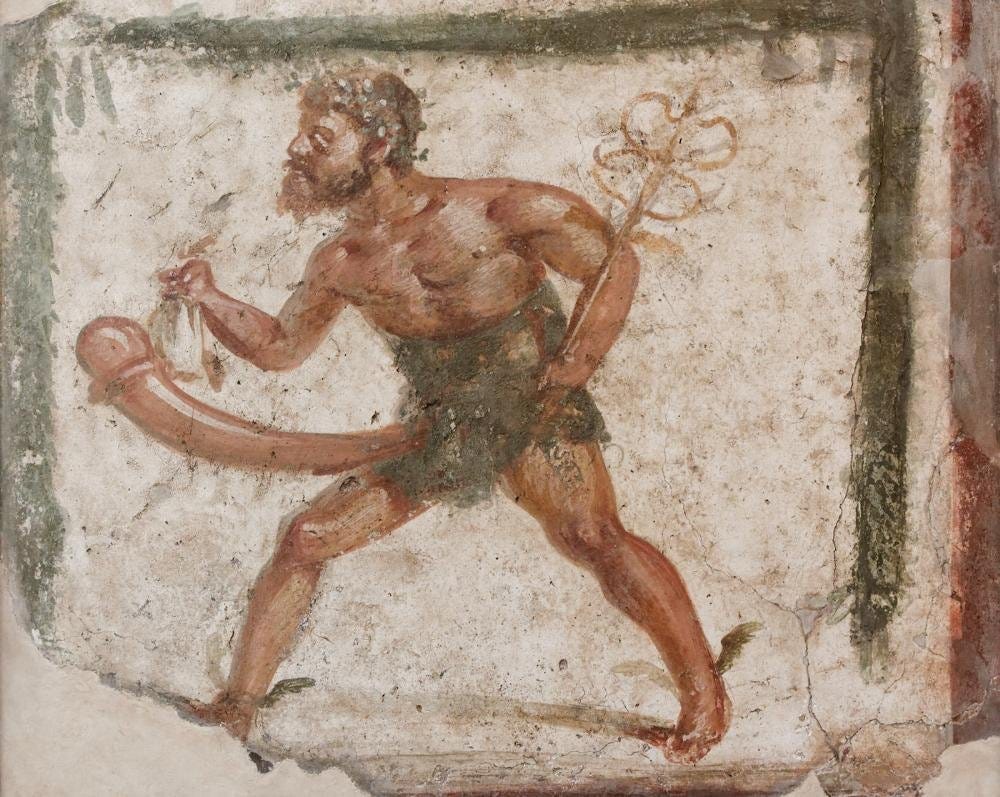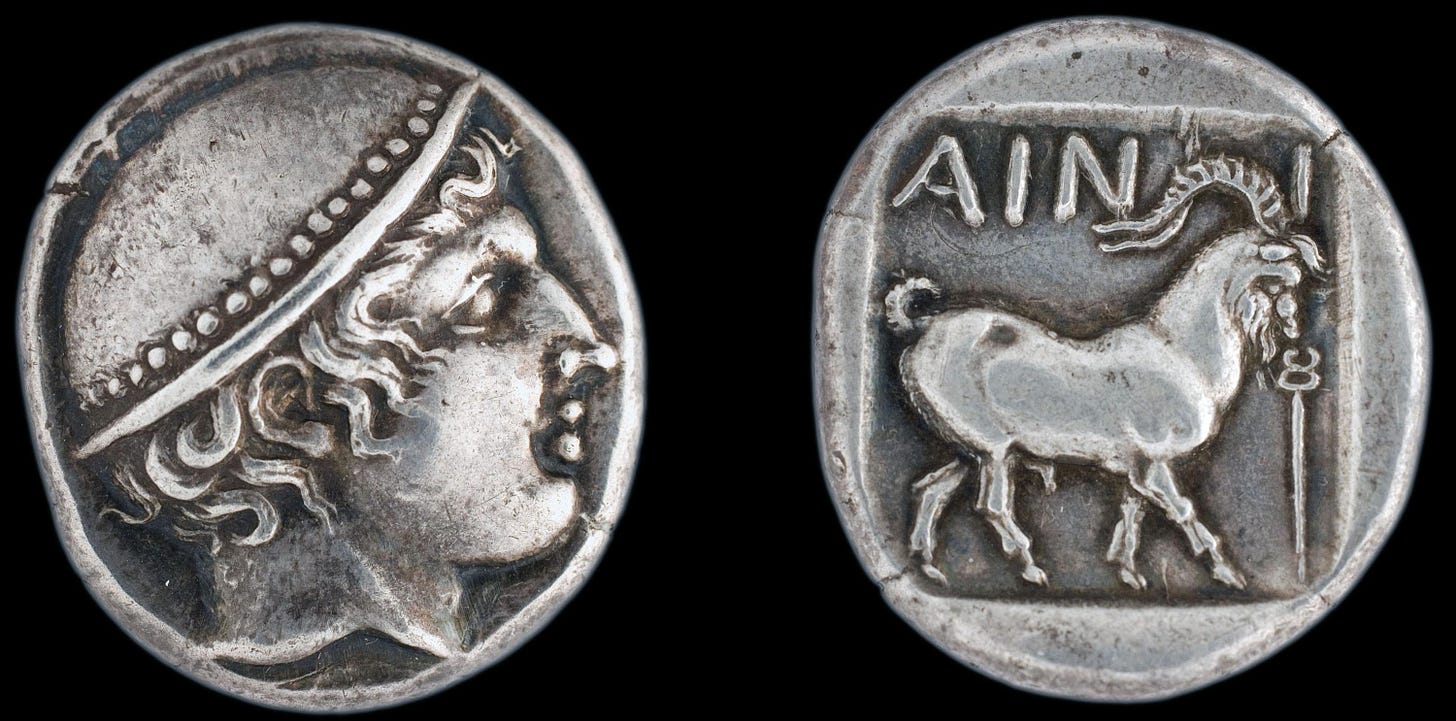Hymn to Hermes Commentary Part 2
Hermes' Giant "Tool," Gods as Comedy, & a BONUS AUDIO TALK by Drew Levanti on Hermes' Trickster Tongue as Political Weapon

Welcome to Part 2 of my commentary on the Orphic Hymn to Hermes! I suggest reading this side-by-side with my translation of the hymn itself and of course, Part 1 of the commentary, which has juicy details on why Hermes is queer AF, the astrological significance of his snake handling, and all sorts of other good stuff!
A HUGE shout-out to my colleague (and co-teacher of our class STAR: An Orphic Initiation) Drew Levanti, who has given my subscribers access to his talk “Trick, Twist, Terror”—on the possibilities of Hermes’ trickster tongue as a political weapon. Keep reading for the link. You can support Drew’s work or get an excellent electional astrology reading from him on his site Arche astrology.
Like my other commentaries, this one is organized line by line, with key phrases from the translation in bold followed by extensive (!) notes. Here, we’re picking up about half-way through the hymn.
Orphic Hymn to Hermes Commentary, Part II
Purveyor of Profit, Passageway of Exchange: Hermes’ association with merchants comes from his ability to negotiate and “sell” ideas. Just as he is not the head of state or deciding body, but the deliverer of state messages, He is not the ultimate origin of wealth, but he is the means to accumulating it through skill, cleverness, and communication.
Overall, we could think of Hermes as a medium of exchange. (Which is a pun that works in English to emphasize the role that Hermes also has in divination and the delivery of messages from the “other side.”) Hermes is a passageway, a purveyor, a “tube” of sorts, connecting two or more people or places. As such, he is helpful for merchants in their negotiations, but also anyone who wants to channel profit of some kind, including messages from the gods or dead souls. (We’ll explore that latter one when I get to the Hymn to Chthonic Hermes). In divination, Hermes was especially associated with casting lots. The element of chance or luck involved in throwing “dice” made of animal knucklebones seems to have been one of his specialties.

Unknot the strings of our cares: The Greek is lusimerimne, which could also be translated as “anxiety-loosener,” or “worry-untangler.” The image is of someone loosening bonds of care or preoccupation. On the most obvious level of meaning, Hermes’ quick-wittedness can help us solve or “loosen” the worries that “tie us up.” Anyone who has spent a sleepless night obsessing over something-or-other can appreciate Hermes’ help with unknotting this sort of bond.




